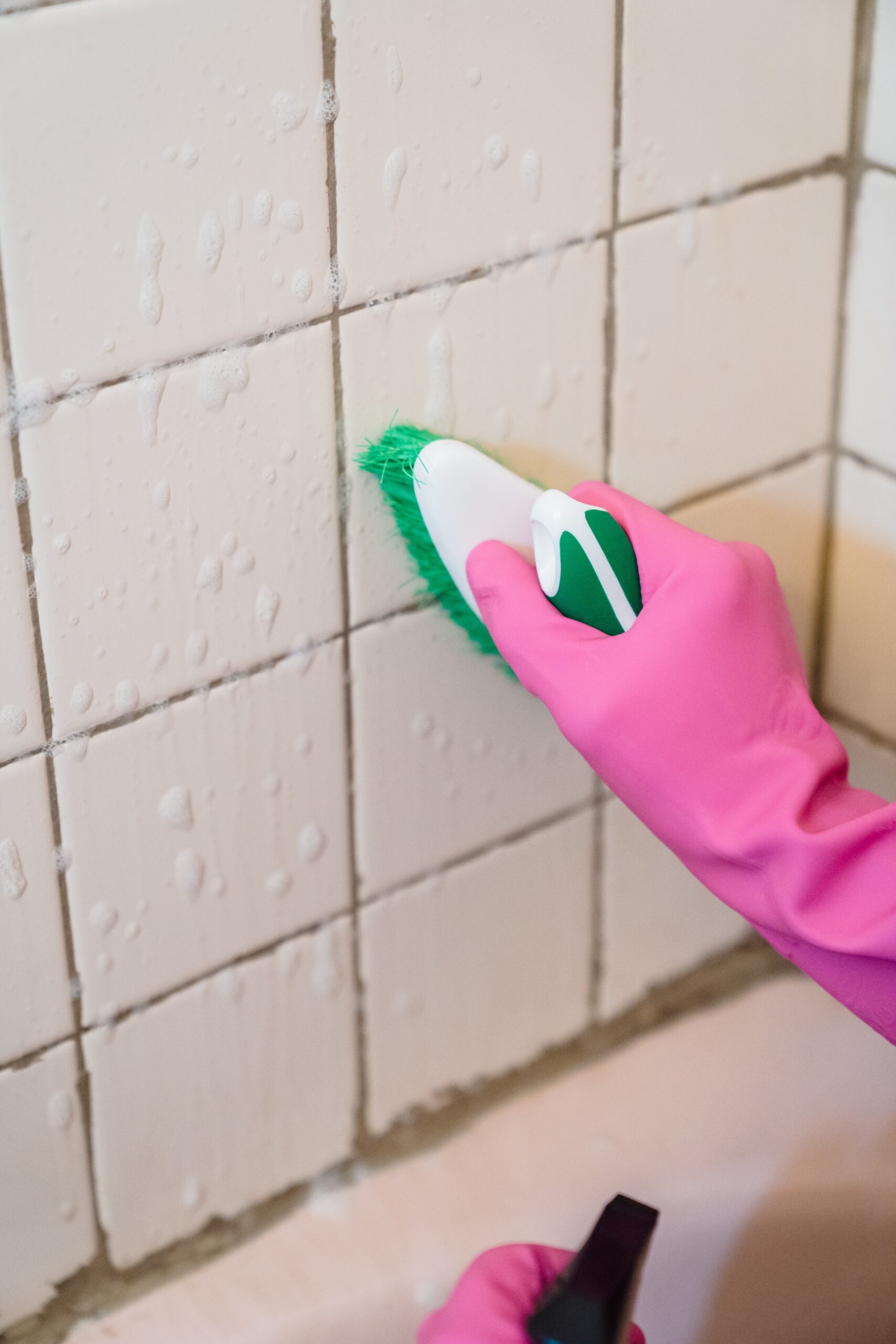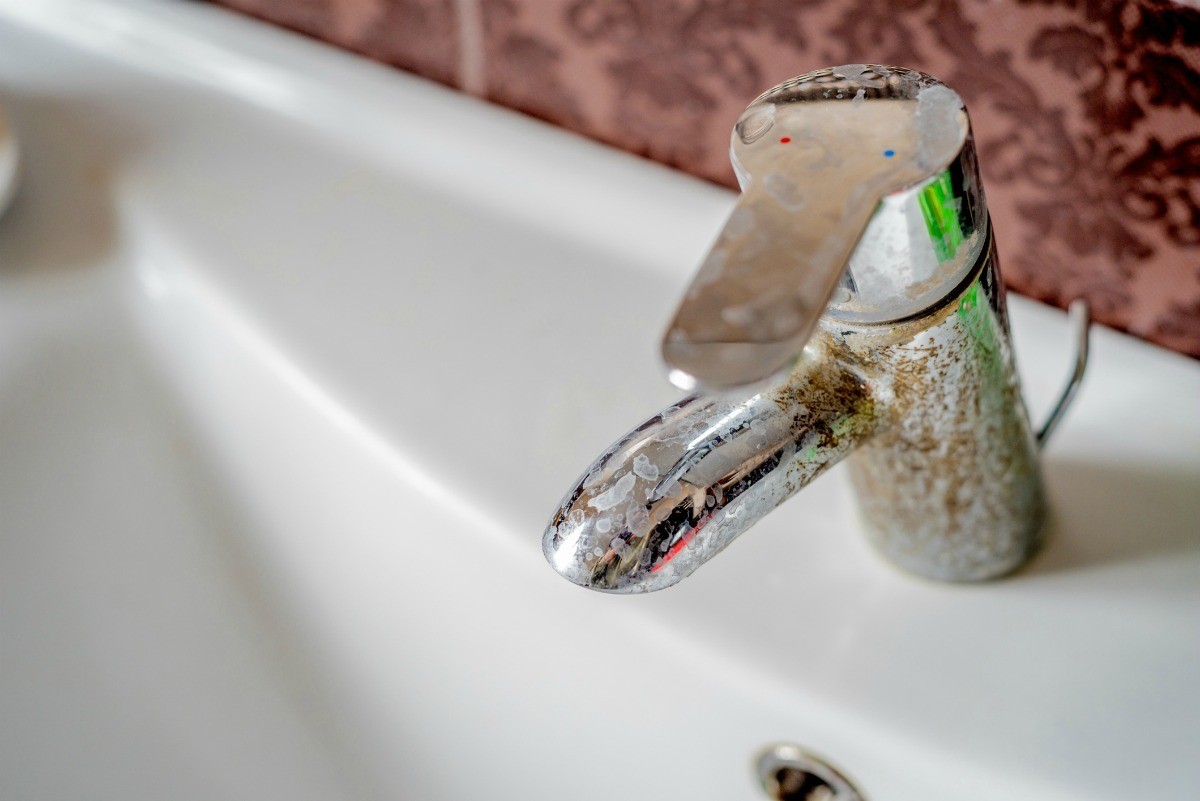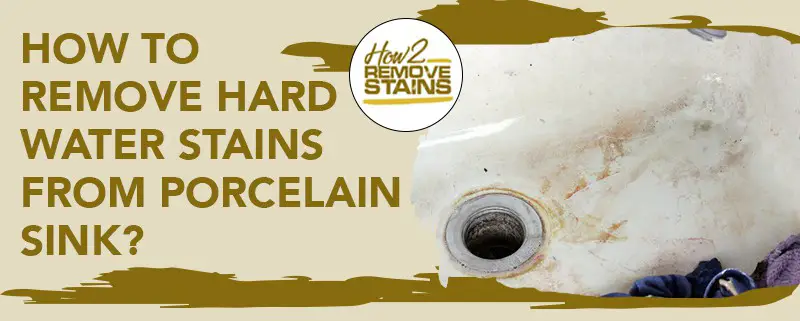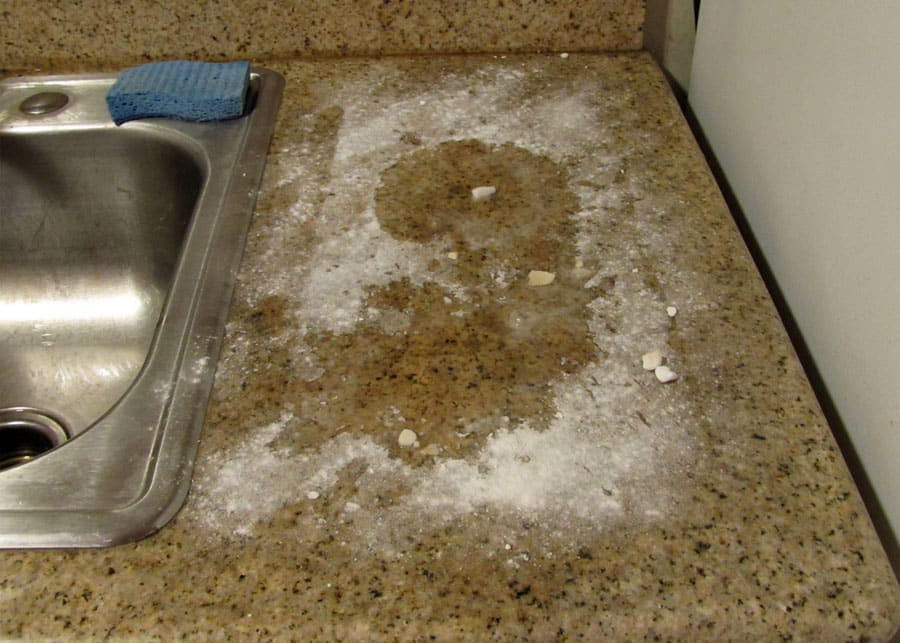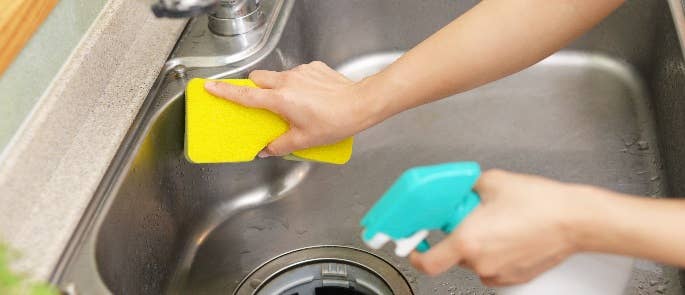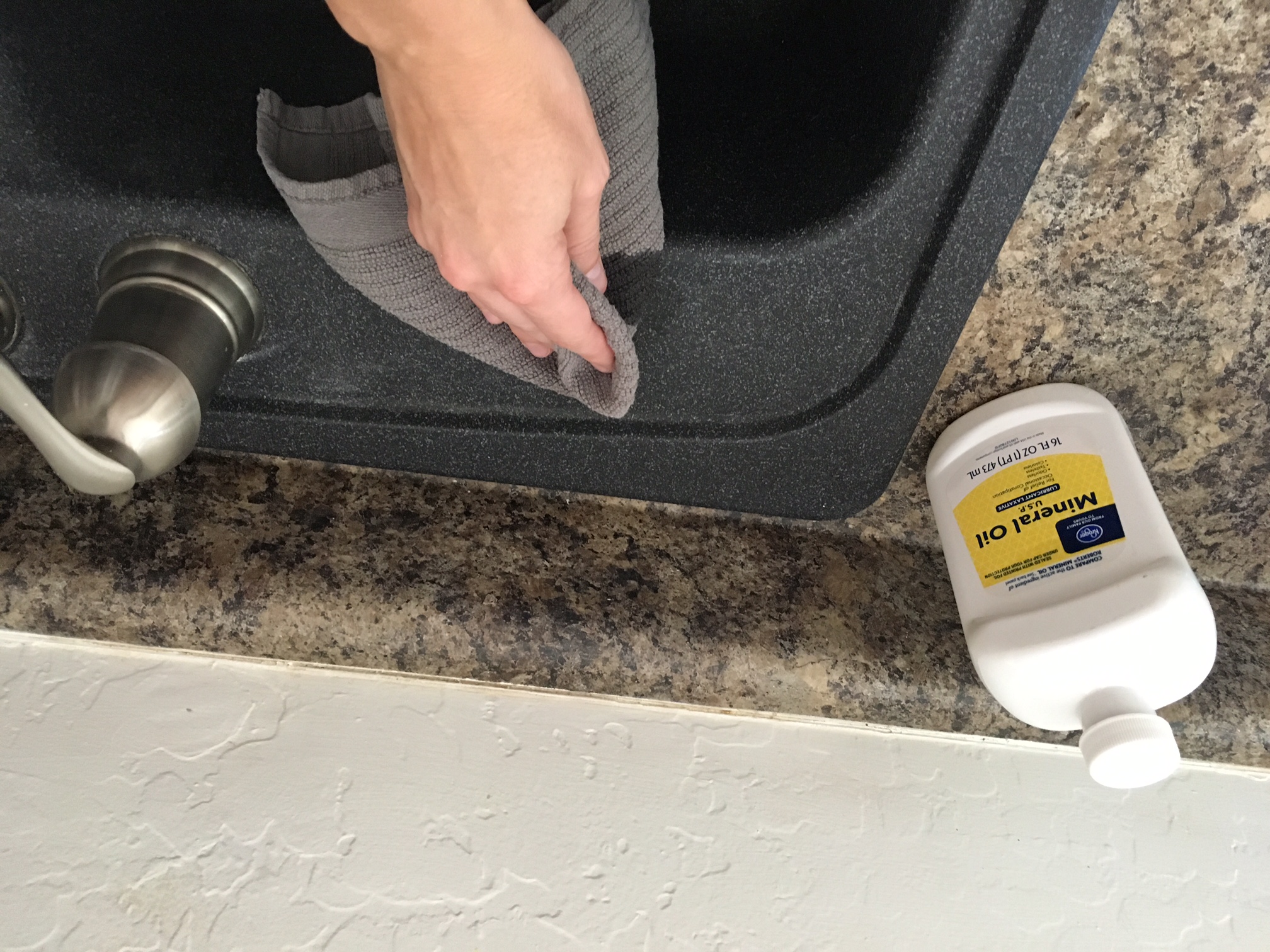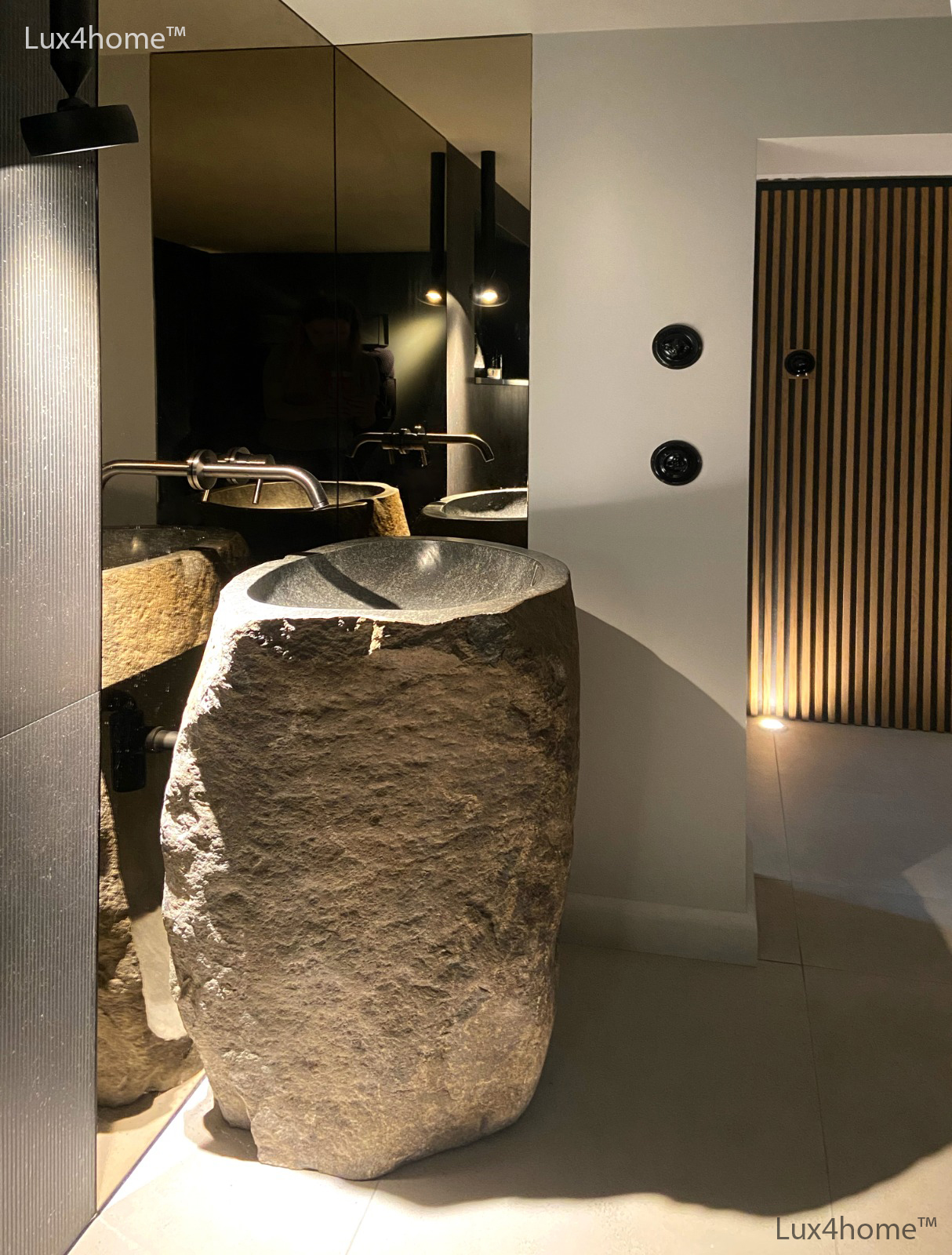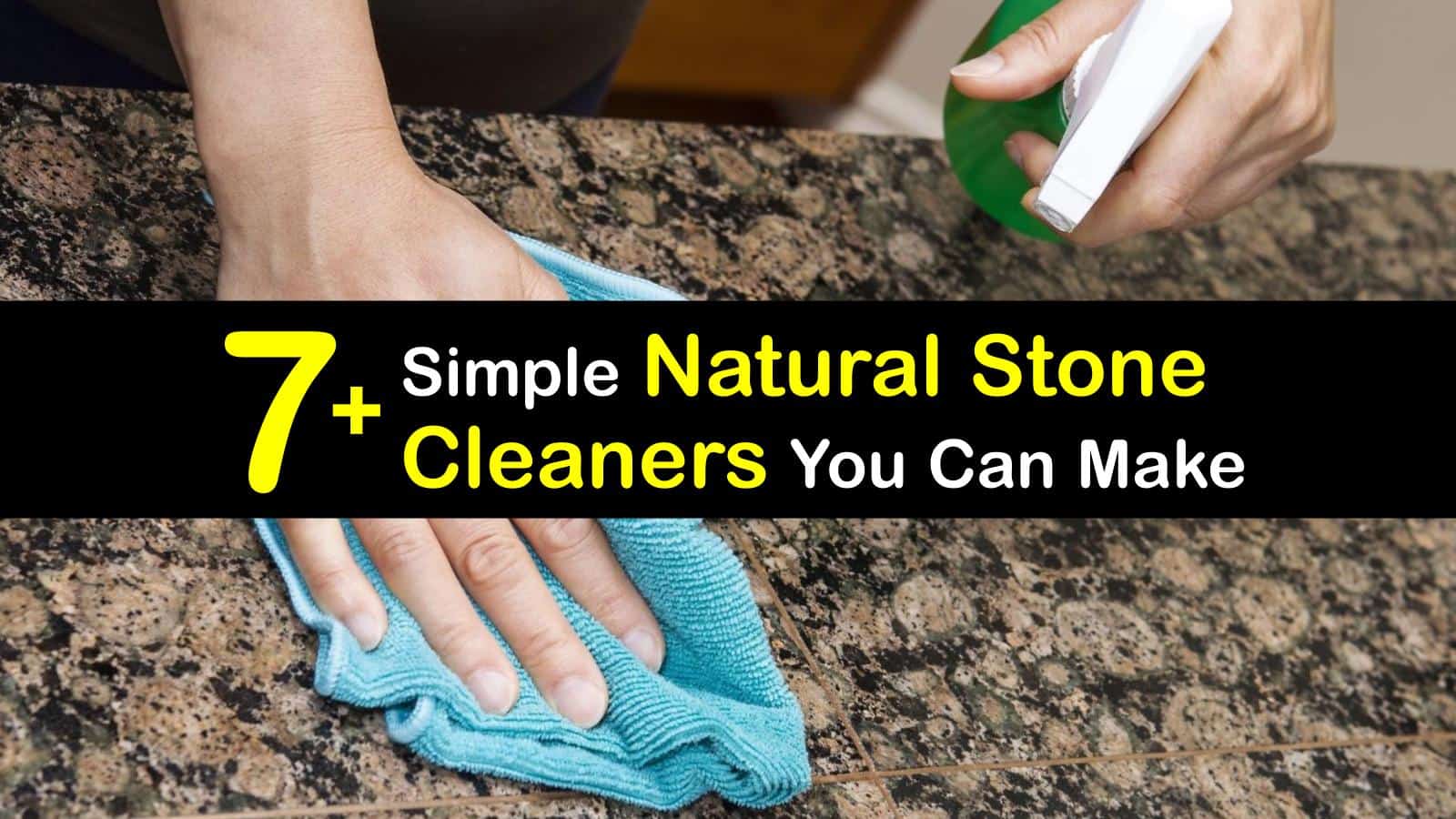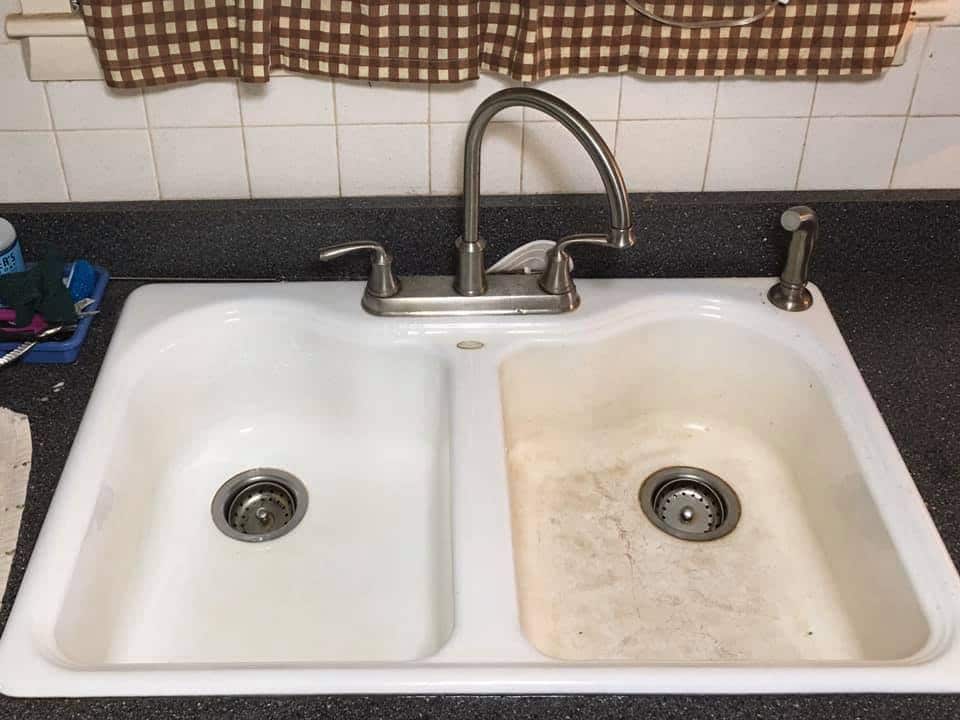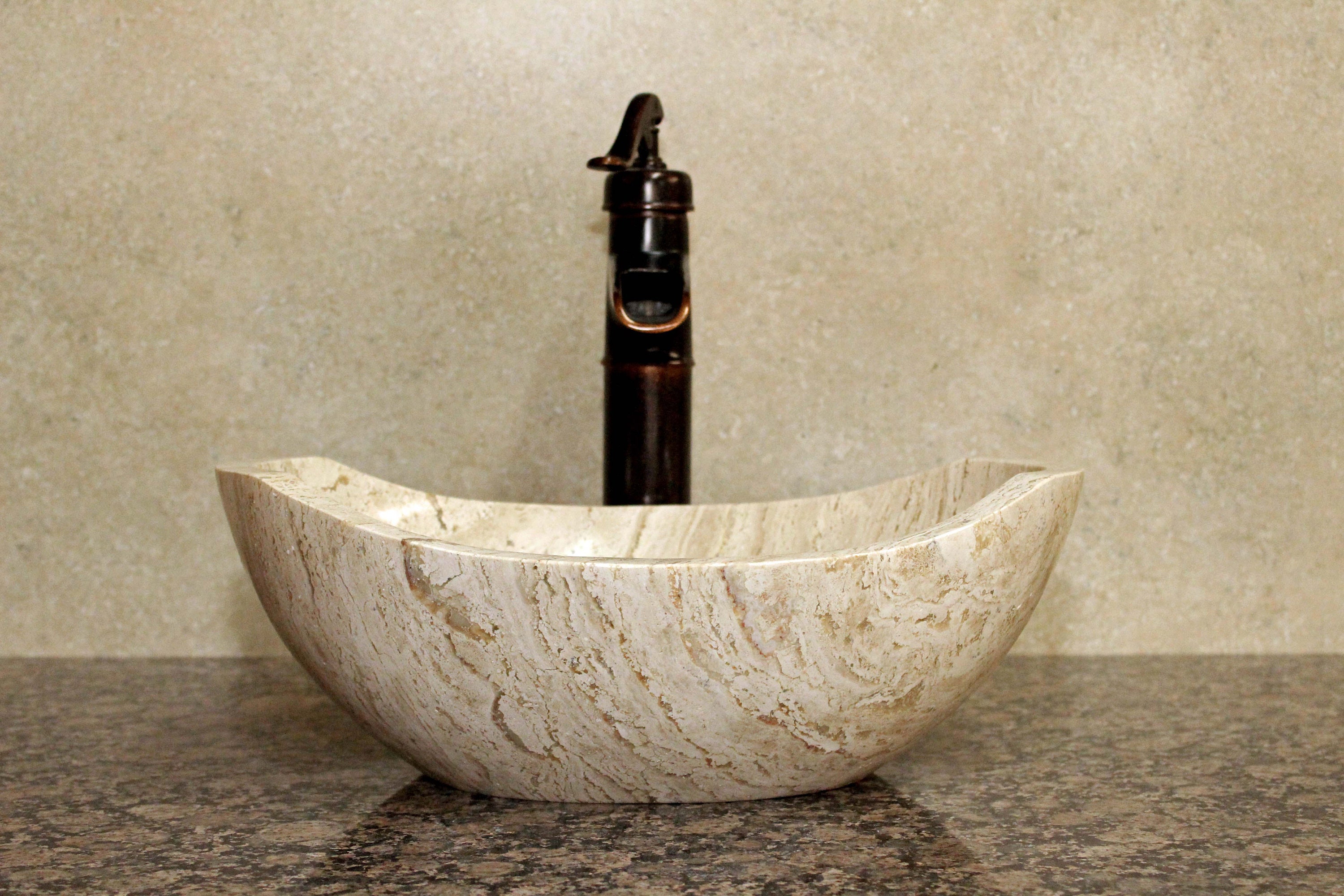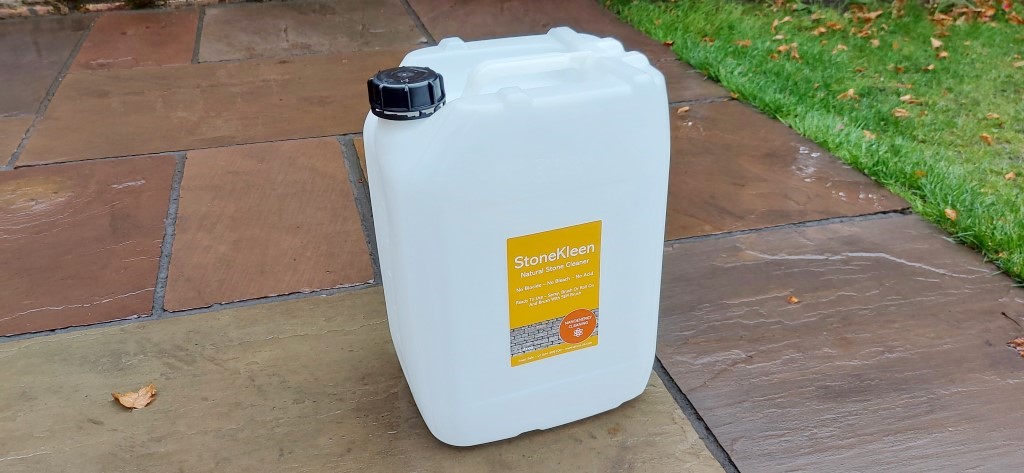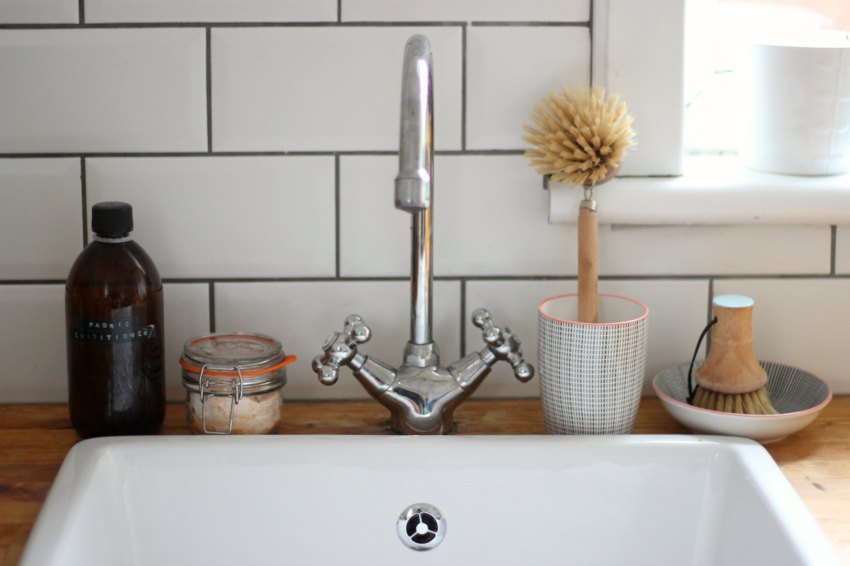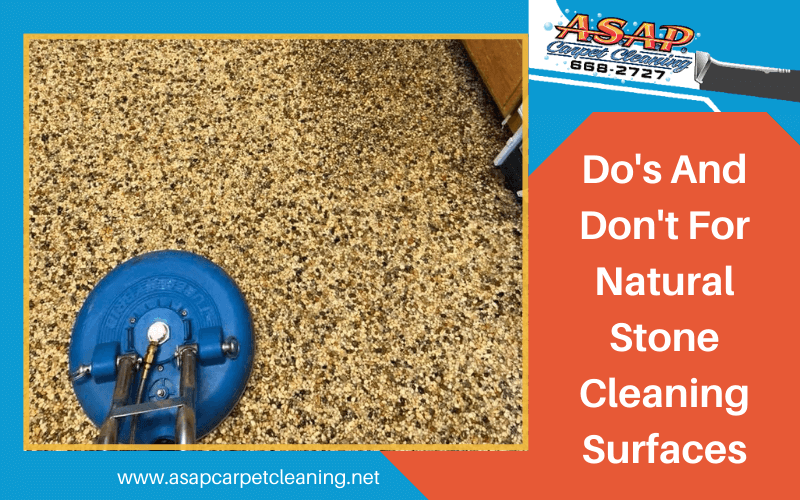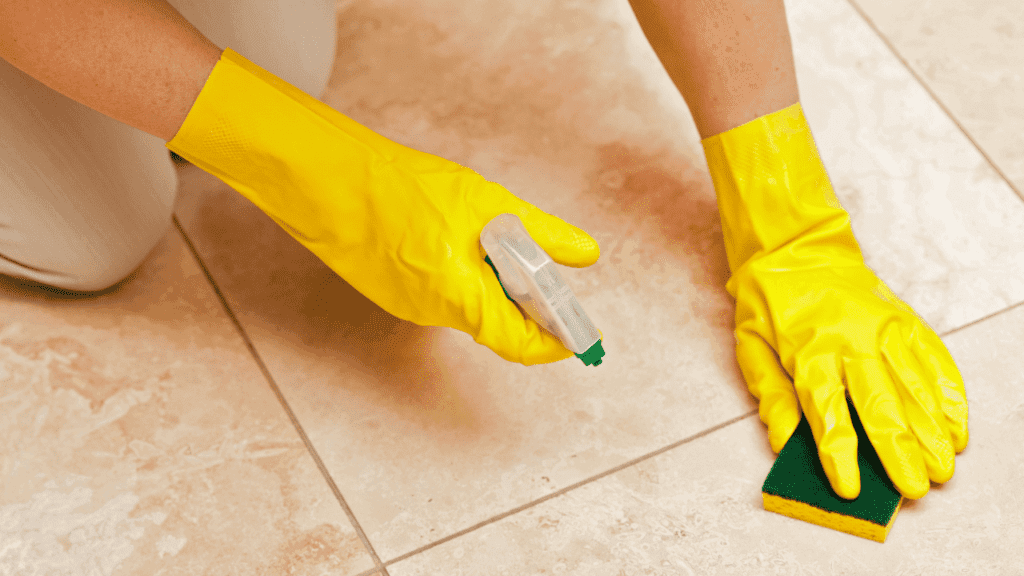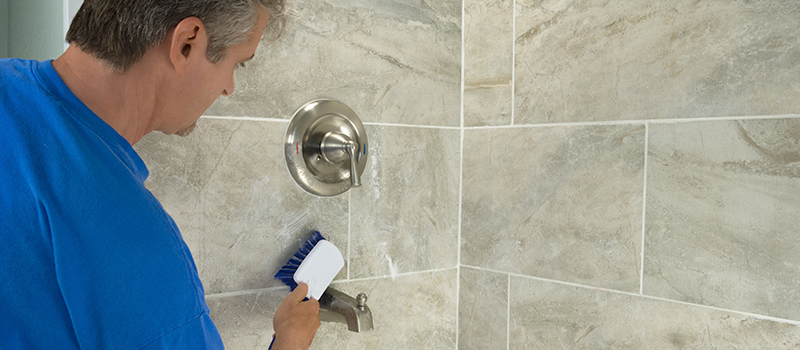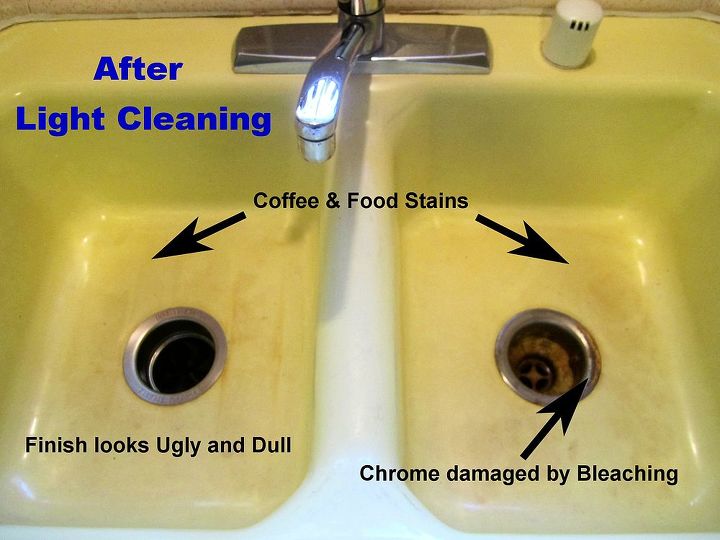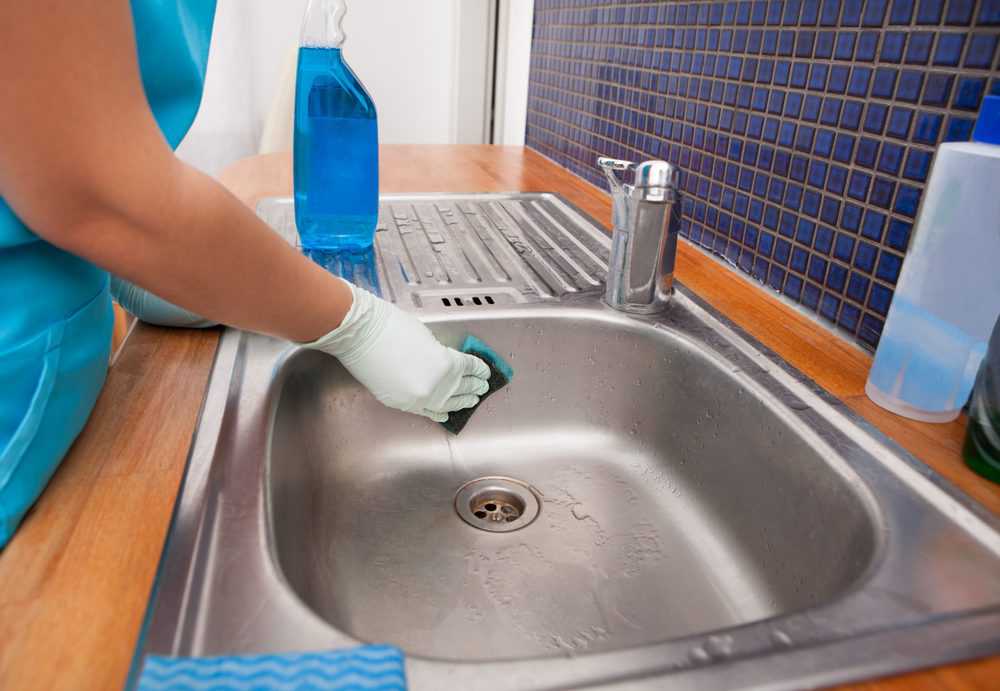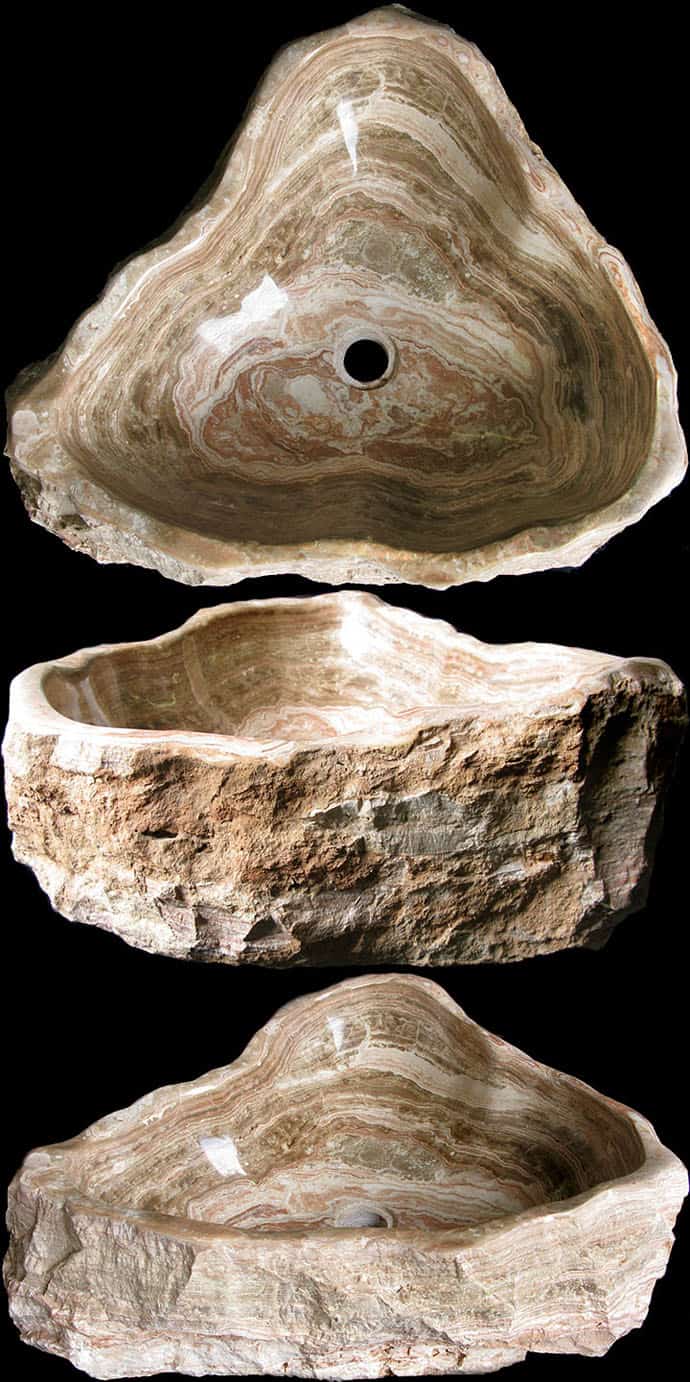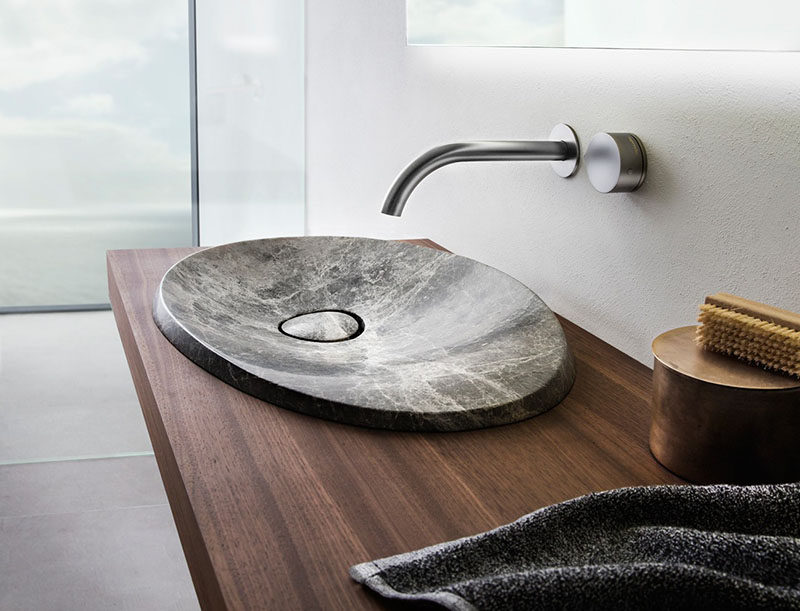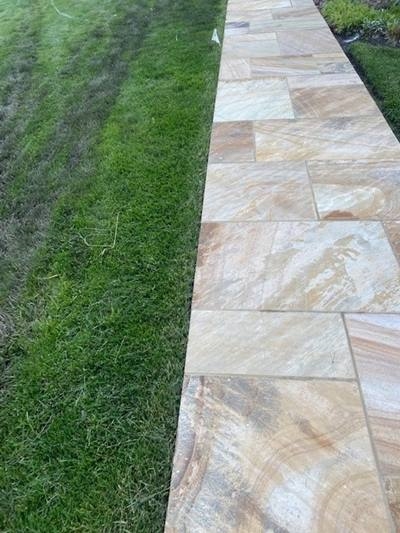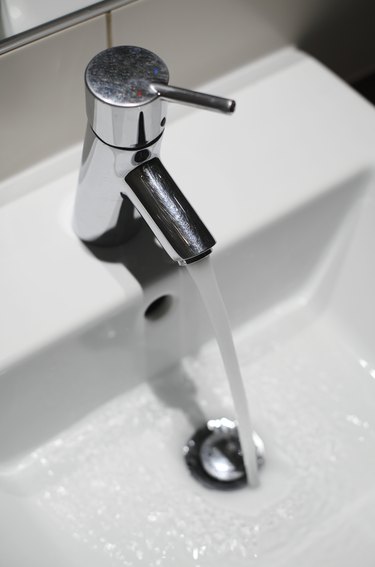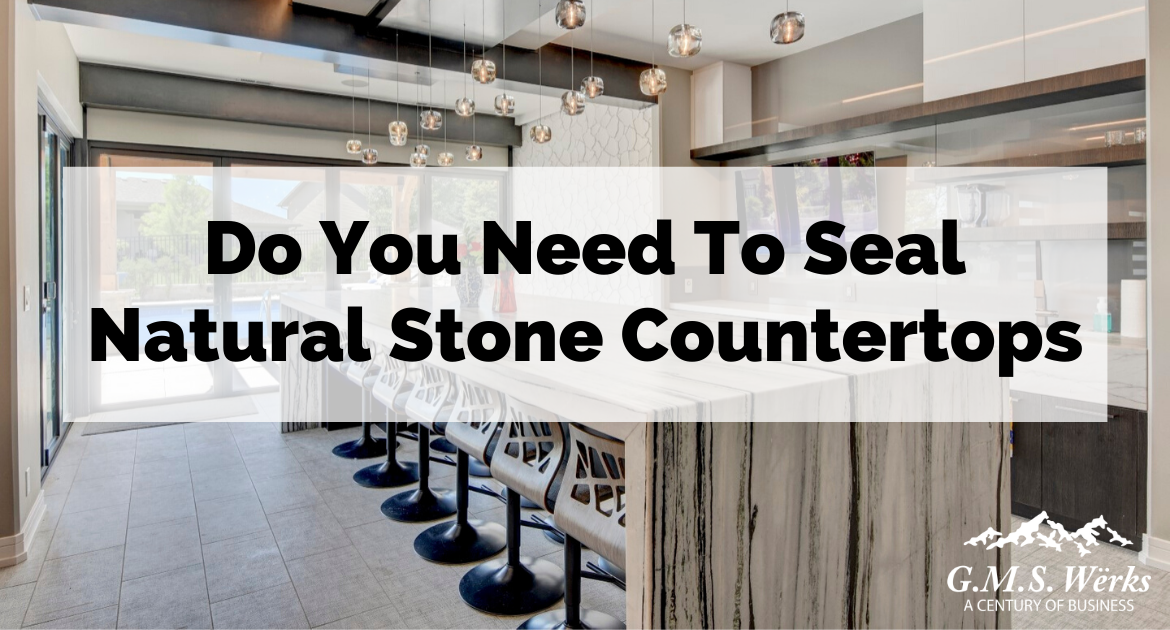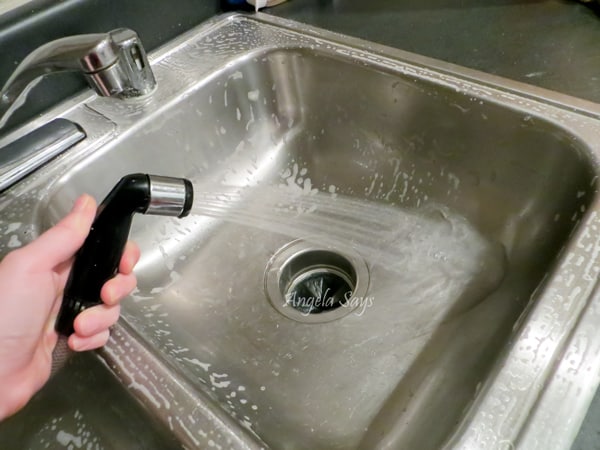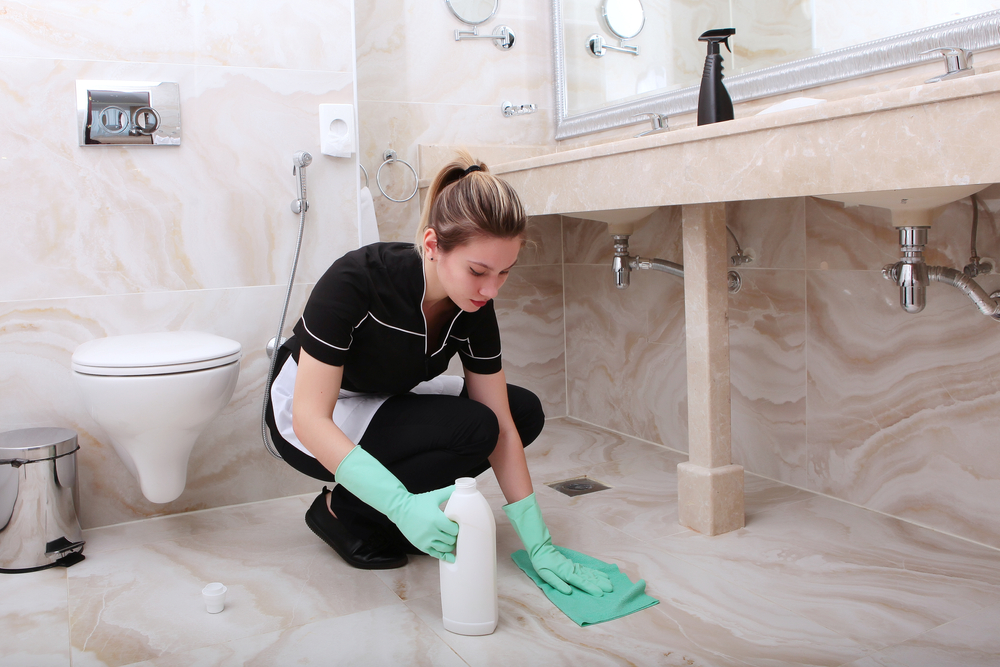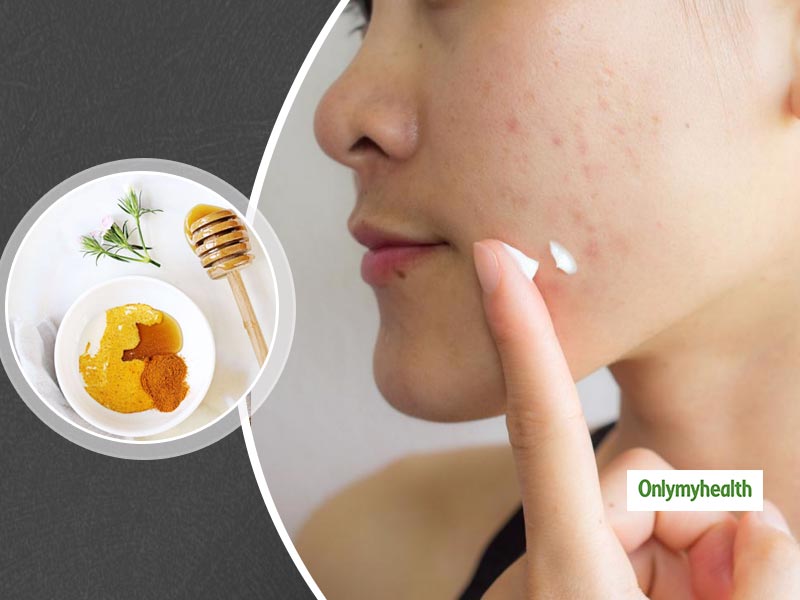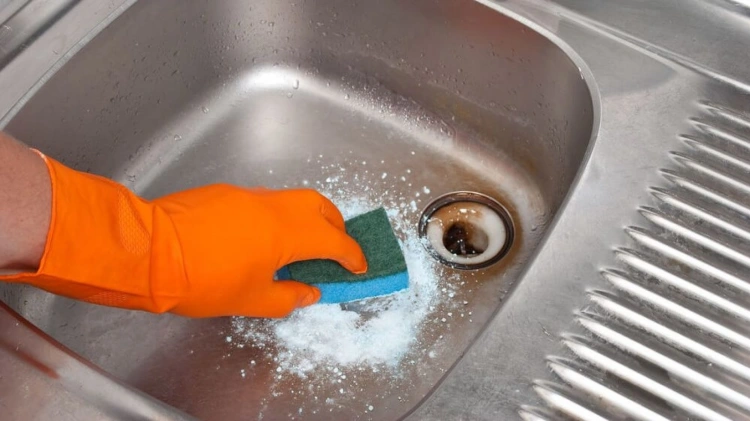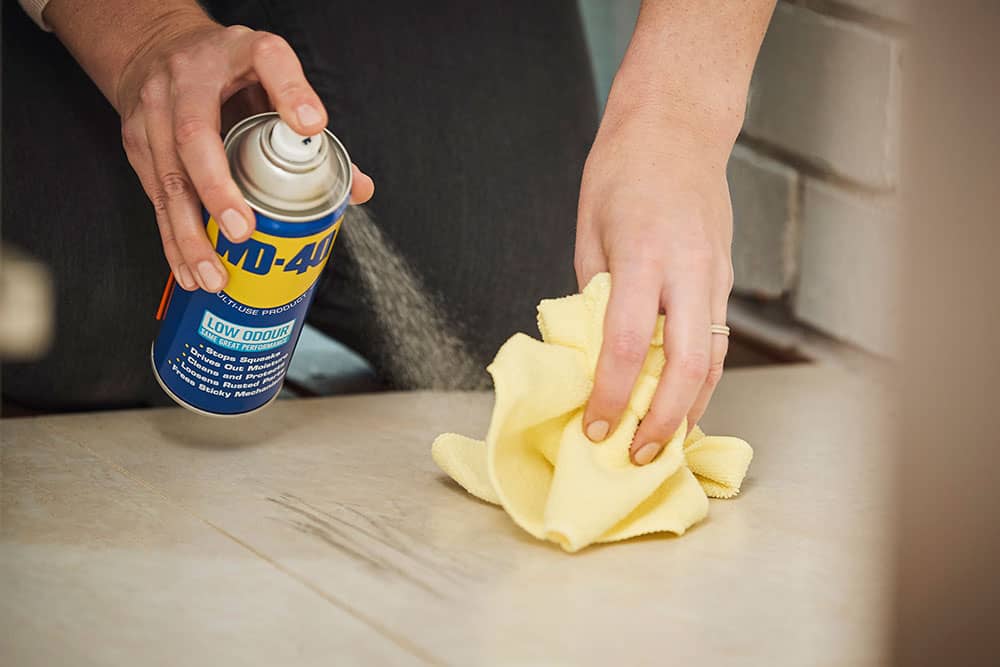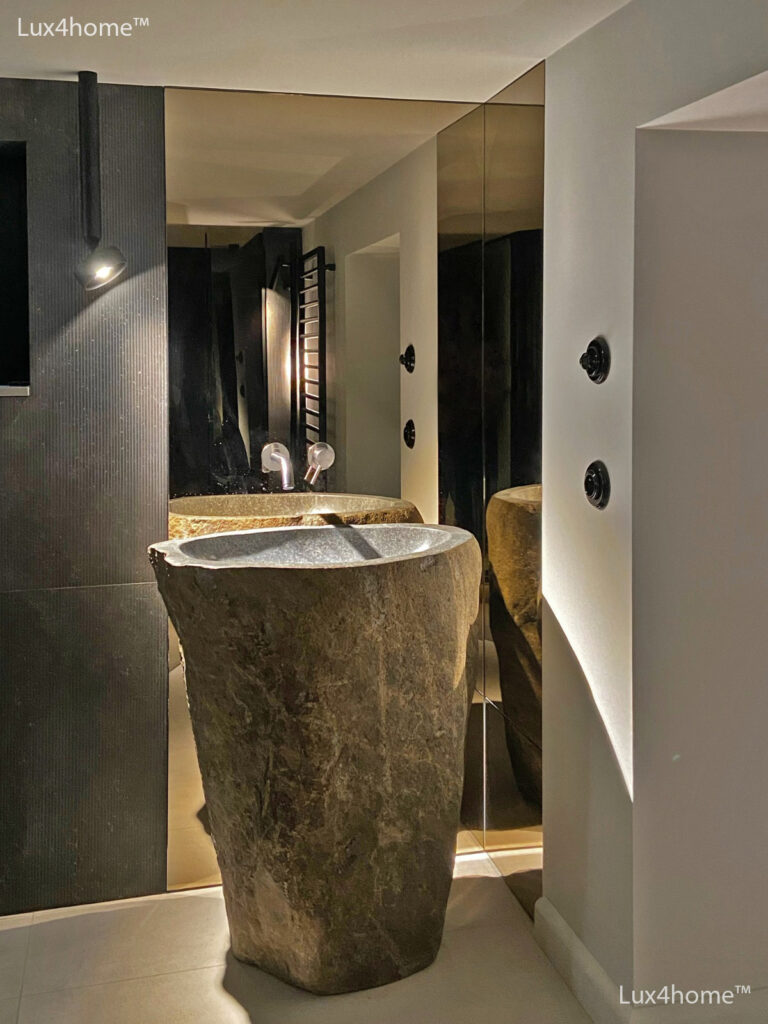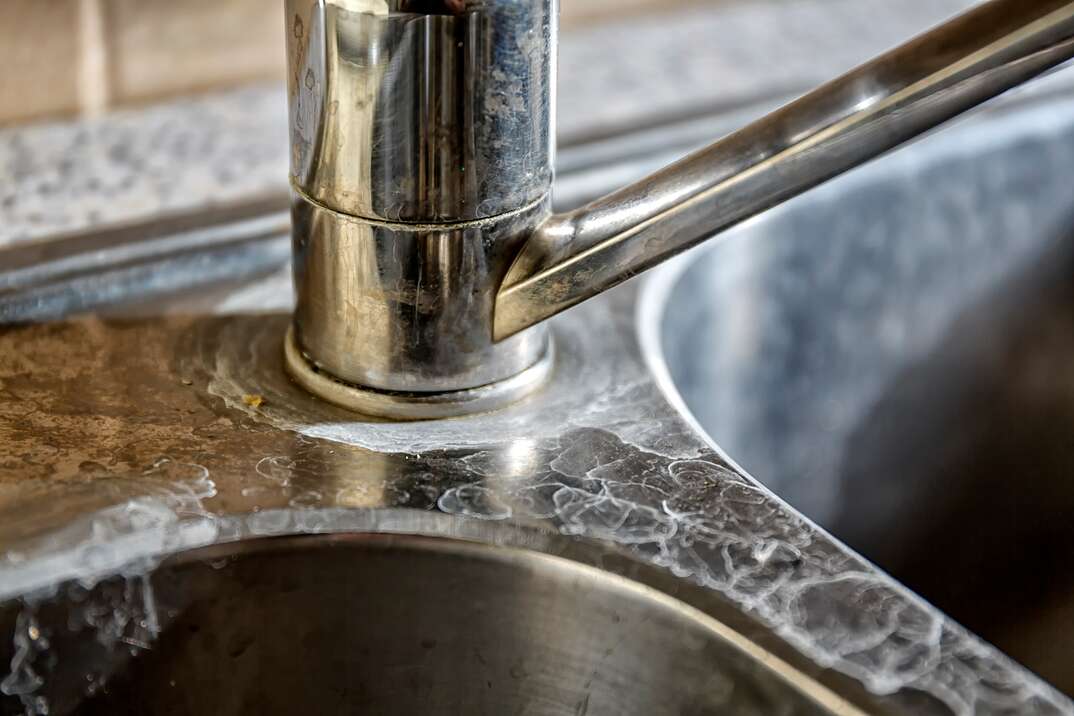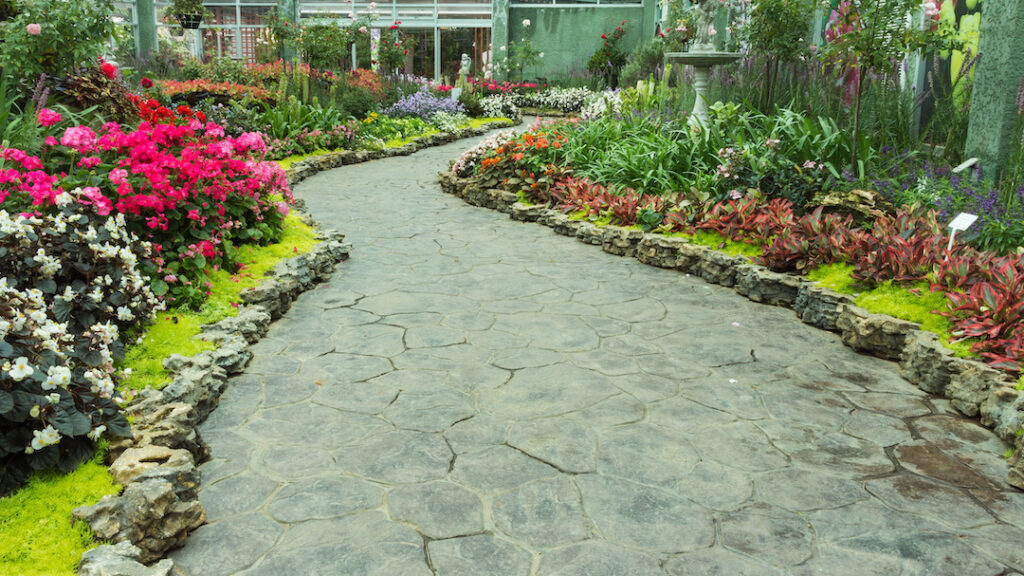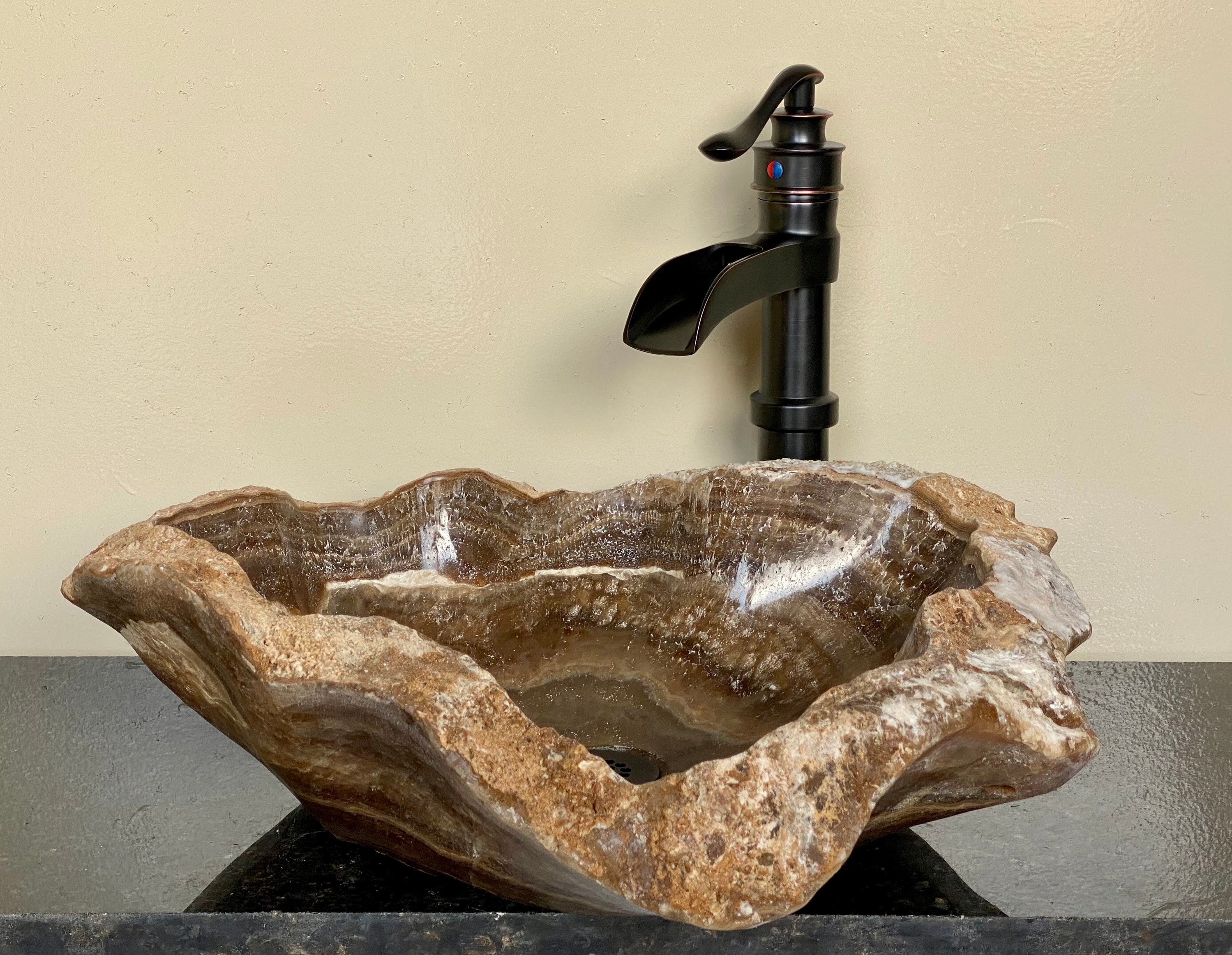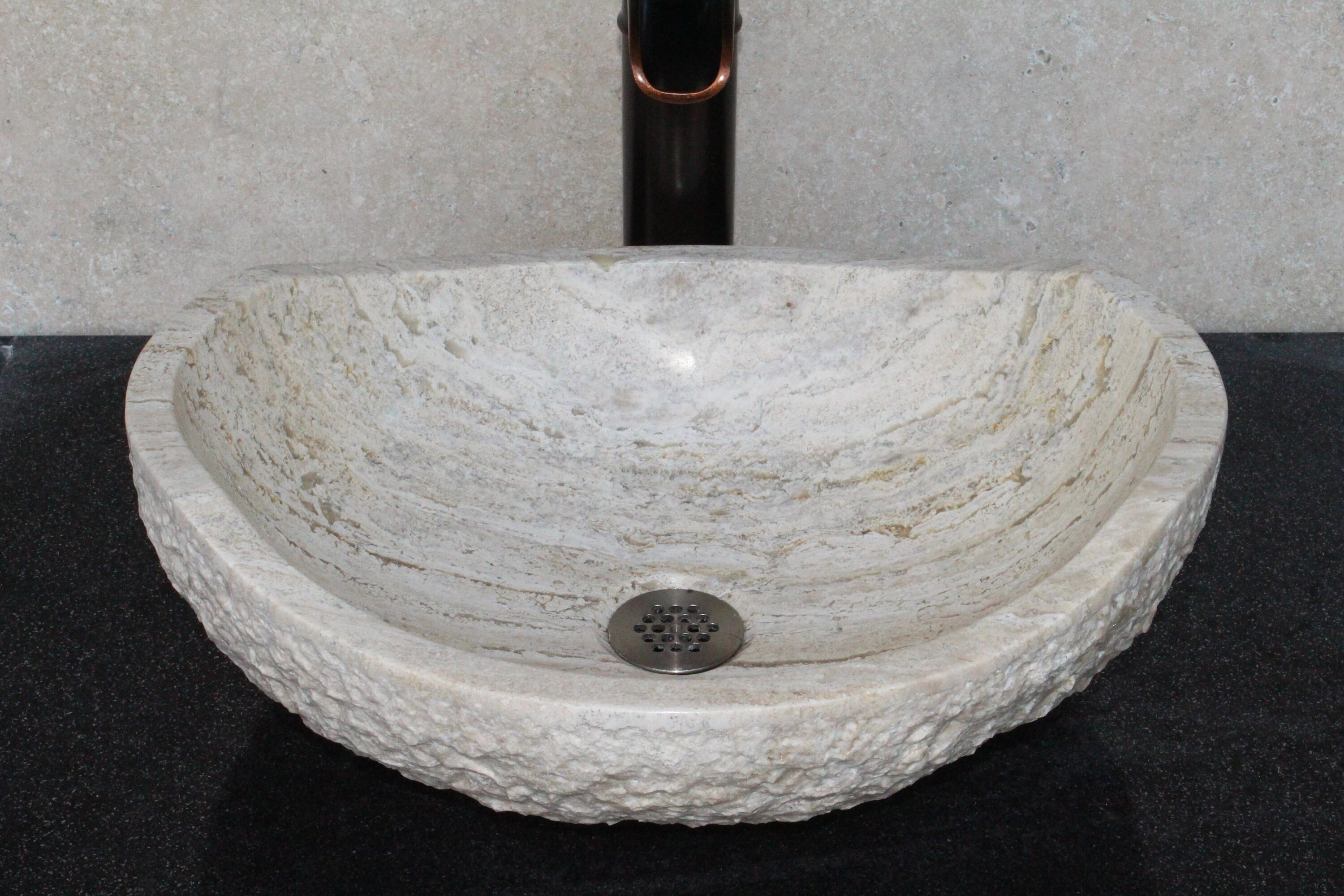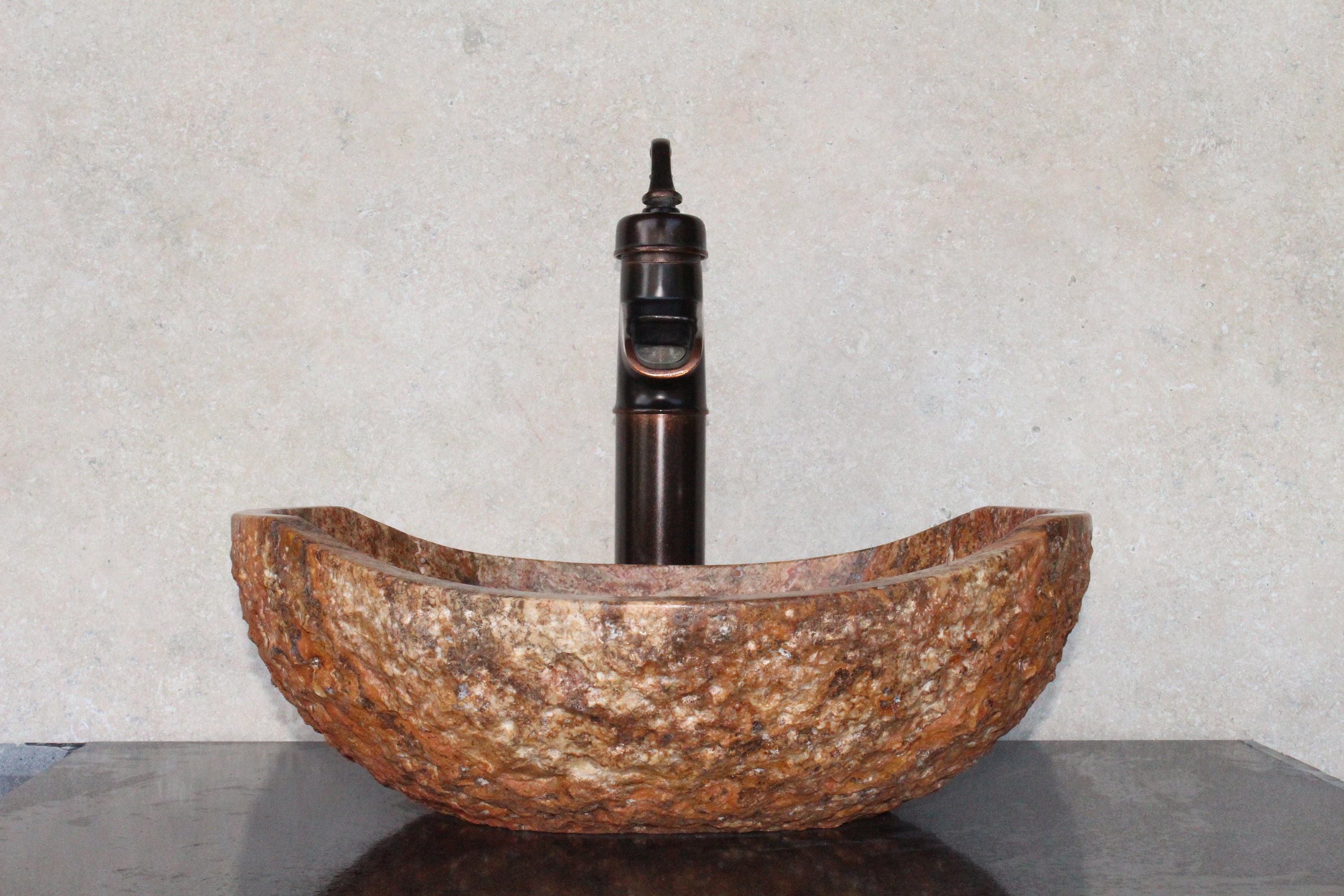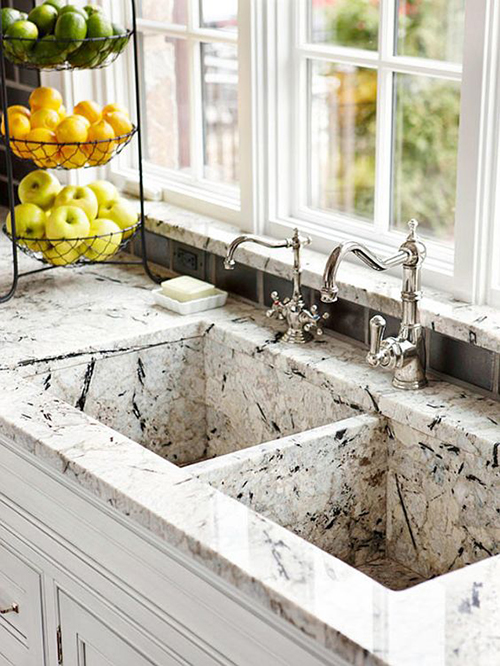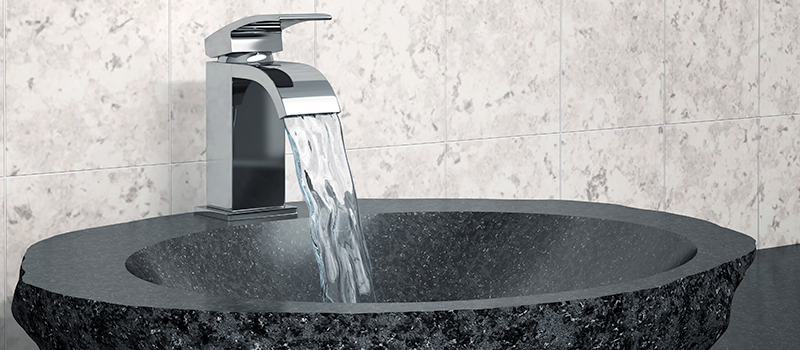How to Remove Hard Water Stains from a Natural Stone Sink
If you have a natural stone kitchen sink, chances are you've encountered those pesky hard water stains. They can be a real eyesore and can make your beautiful sink look dull and dirty. But fear not, there are simple and effective ways to remove these stains and restore the shine to your sink.
The first step is to identify the type of natural stone your sink is made of. Different types of stone require different cleaning methods, so it's important to know which one you have. Some common types of natural stone used for sinks are granite, marble, and soapstone.
Once you know what type of stone you're dealing with, you can start the cleaning process. One of the best ways to remove hard water stains is by using a mixture of white vinegar and baking soda. Simply mix equal parts of both ingredients and apply the paste to the stained areas. Let it sit for 15-20 minutes, then scrub with a soft-bristled brush and rinse with water.
How to Clean and Maintain a Natural Stone Kitchen Sink
Regular cleaning and maintenance is key to keeping your natural stone kitchen sink looking its best. Start by wiping down the sink with a mild dish soap and warm water. Avoid using harsh chemicals or abrasive sponges, as they can damage the stone.
For tougher stains, you can make a DIY natural stone cleaner using castile soap and water. Mix a few drops of castile soap with warm water and use a soft cloth to gently scrub the sink. Rinse thoroughly with water and dry with a clean cloth.
It's important to also avoid leaving acidic substances, such as lemon juice or tomato sauce, on the sink for too long as they can cause etching on the stone. If you do spill any acidic substances, make sure to wipe them up immediately.
DIY Natural Stone Sink Cleaner
For a natural and effective stone sink cleaner, you can make your own using essential oils and water. Fill a spray bottle with water and add a few drops of your favorite essential oil, such as lavender or tea tree. Shake well and spray onto the sink, then wipe with a soft cloth. Not only will this leave your sink sparkling clean, but it will also leave a pleasant scent.
Preventing Spots and Stains on Your Natural Stone Sink
The best way to keep your natural stone sink looking spotless is by preventing stains in the first place. Always wipe down the sink after use, and avoid leaving dirty dishes or standing water in the sink for extended periods of time.
You can also invest in a good quality stone sealer and apply it to your sink every 6-12 months. This will help protect the stone from stains and make it easier to clean.
Best Products for Cleaning Natural Stone Sinks
If you're not a fan of making your own cleaning solutions, there are many commercial products available specifically designed for cleaning natural stone sinks. Look for ones that are made with natural ingredients and are safe for use on all types of stone.
Some popular and effective options include Method Daily Granite Cleaner, Black Diamond Stoneworks Granite Plus Cleaner, and Rock Doctor Granite Cleaner. Always follow the instructions on the product label and test a small area of your sink before using it on the entire surface.
How to Seal a Natural Stone Sink to Prevent Spots
Sealing your natural stone sink is an important step in preventing spots and stains. Before sealing, make sure the sink is clean and dry. Apply the sealer according to the manufacturer's instructions, making sure to cover the entire surface evenly. Let it dry for the recommended amount of time before using the sink again.
It's important to note that sealing won't prevent all stains, but it will make it easier to clean and maintain your sink.
Removing Stubborn Spots from a Natural Stone Sink
If you have stubborn spots or stains on your natural stone sink that won't come off with regular cleaning methods, there are a few things you can try. For organic stains, such as wine or coffee, you can make a paste using hydrogen peroxide and baking soda. Apply the paste to the stained area and let it sit for 15-20 minutes before scrubbing and rinsing.
If the stain is oil-based, like cooking oil or grease, you can use a mixture of cornstarch and water. Make a paste and apply it to the stain, then let it sit for a few hours before wiping it off and rinsing.
How to Protect Your Natural Stone Sink from Hard Water Damage
Hard water can cause damage to your natural stone sink over time, leaving behind white spots and a dull appearance. To prevent this, you can invest in a water softener system for your home. This will help reduce the mineral content in your water and protect your sink from hard water damage.
You can also incorporate a weekly cleaning routine using a mixture of equal parts water and white vinegar to help prevent hard water stains from forming.
Natural Remedies for Removing Spots on a Stone Sink
If you prefer to use natural remedies for cleaning your natural stone sink, there are a few options you can try. For hard water stains, you can use a mixture of lemon juice and salt. Apply the mixture to the stained area and let it sit for a few minutes before scrubbing and rinsing.
For rust stains, you can make a paste using baking soda and lemon juice. Apply it to the stain and let it sit for 10-15 minutes before scrubbing and rinsing. If the stain is particularly stubborn, you can try using a rust remover specifically designed for natural stone surfaces.
How to Maintain the Shine on Your Natural Stone Sink
To keep your natural stone sink looking shiny and new, it's important to maintain it regularly. This includes wiping it down after each use, using gentle and natural cleaning products, and avoiding harsh chemicals and abrasives.
You can also periodically use a polishing compound specifically made for natural stone to bring back the shine and remove any minor scratches or imperfections.
In conclusion, by following these tips and tricks, you can easily remove spots and stains from your natural stone kitchen sink and keep it looking pristine for years to come. Remember to always use gentle and natural cleaning methods, and to regularly maintain and protect your sink to prevent any damage. With the right care, your natural stone sink will continue to be a beautiful and functional addition to your kitchen.
How to Keep Your Natural Stone Kitchen Sink Spotless

The Importance of a Clean Kitchen Sink
 As the central hub of meal preparation and cleanup, the kitchen sink is one of the most frequently used areas in any home. This is especially true for natural stone kitchen sinks, which are known for their durability and aesthetic appeal. However, with daily use and exposure to various substances, these sinks can start to develop unsightly spots and stains. Not only do these spots detract from the beauty of your kitchen, but they can also harbor bacteria and affect the overall hygiene of your home. That's why it's important to know how to keep your natural stone kitchen sink spotless.
As the central hub of meal preparation and cleanup, the kitchen sink is one of the most frequently used areas in any home. This is especially true for natural stone kitchen sinks, which are known for their durability and aesthetic appeal. However, with daily use and exposure to various substances, these sinks can start to develop unsightly spots and stains. Not only do these spots detract from the beauty of your kitchen, but they can also harbor bacteria and affect the overall hygiene of your home. That's why it's important to know how to keep your natural stone kitchen sink spotless.
Identifying the Causes of Spots
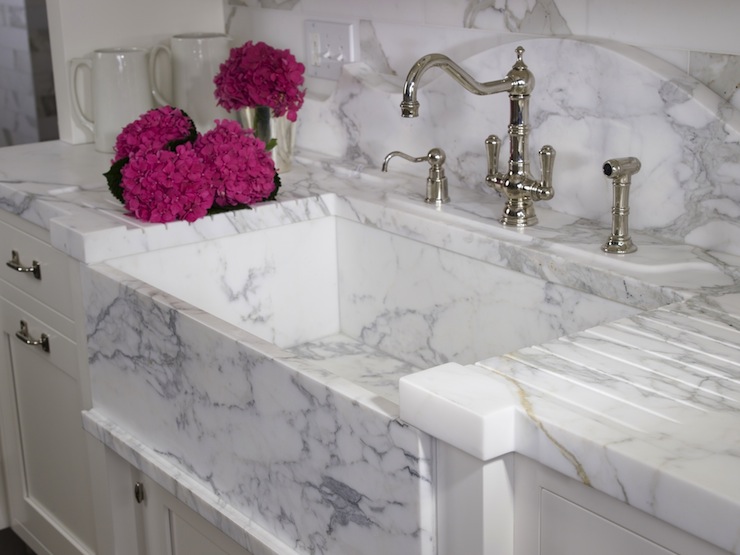 Before we delve into the solutions, it's important to understand the common causes of spots on natural stone kitchen sinks. Hard water deposits, soap scum, and food residue are the main culprits. Hard water contains minerals such as calcium and magnesium, which can build up and leave white or cloudy spots on your sink. The fats and oils in soap can also leave a film on the surface of the sink, leading to a dull and dirty appearance. Food residue, particularly acidic substances like citrus juice and vinegar, can cause etching on the surface of the sink, leaving behind unsightly marks.
Before we delve into the solutions, it's important to understand the common causes of spots on natural stone kitchen sinks. Hard water deposits, soap scum, and food residue are the main culprits. Hard water contains minerals such as calcium and magnesium, which can build up and leave white or cloudy spots on your sink. The fats and oils in soap can also leave a film on the surface of the sink, leading to a dull and dirty appearance. Food residue, particularly acidic substances like citrus juice and vinegar, can cause etching on the surface of the sink, leaving behind unsightly marks.
Preventative Measures
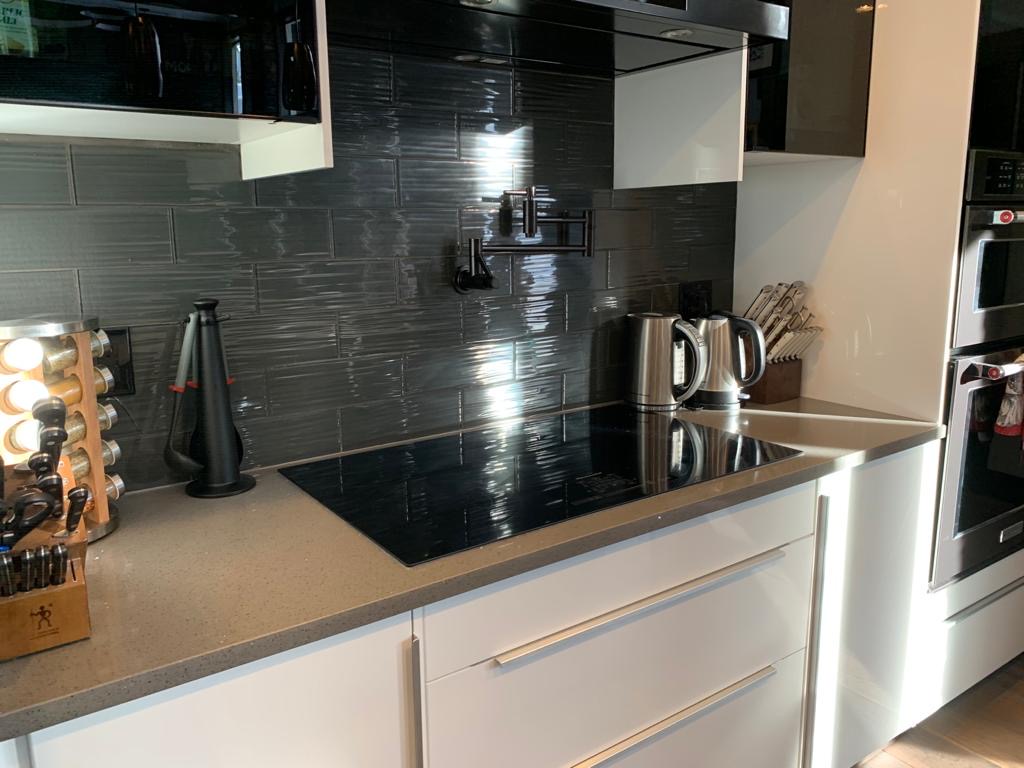 The best way to keep your natural stone kitchen sink spotless is to prevent spots from forming in the first place. This can be achieved by regularly wiping down the sink with a soft cloth after each use. Avoid using abrasive cleaners or scrubbing pads, as they can scratch the surface of the stone. Instead, opt for a gentle cleaner specifically designed for natural stone. Additionally, make sure to rinse the sink thoroughly after each use to remove any leftover food or soap residue. Finally, consider investing in a water softener to reduce the mineral content in your water and prevent hard water spots.
The best way to keep your natural stone kitchen sink spotless is to prevent spots from forming in the first place. This can be achieved by regularly wiping down the sink with a soft cloth after each use. Avoid using abrasive cleaners or scrubbing pads, as they can scratch the surface of the stone. Instead, opt for a gentle cleaner specifically designed for natural stone. Additionally, make sure to rinse the sink thoroughly after each use to remove any leftover food or soap residue. Finally, consider investing in a water softener to reduce the mineral content in your water and prevent hard water spots.
Removing Existing Spots
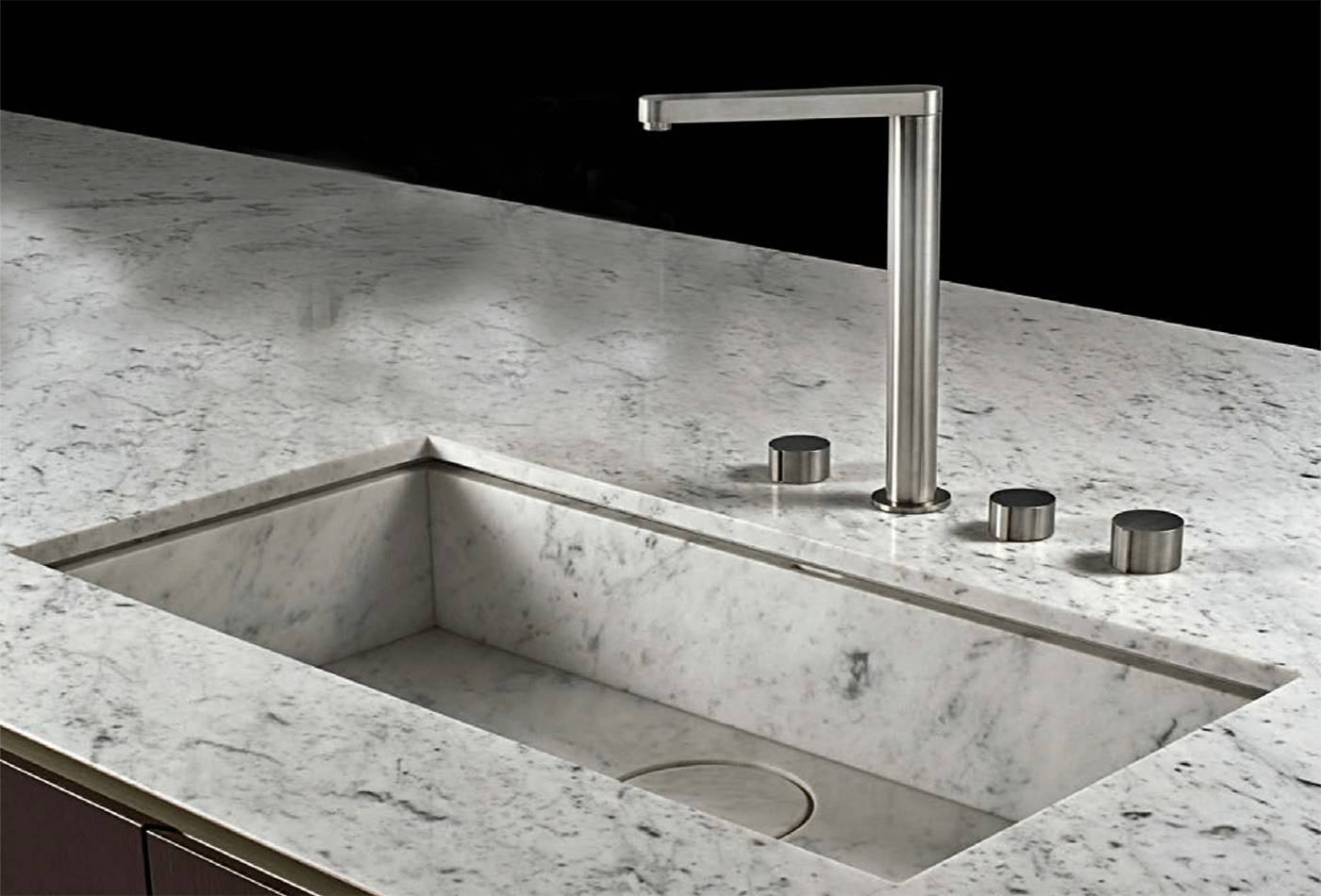 If your natural stone kitchen sink already has spots, don't worry! There are effective ways to remove them and restore the sink to its original beauty. For hard water spots, a solution of equal parts white vinegar and water can be used to dissolve the mineral deposits. Simply spray the solution onto the affected area and let it sit for a few minutes before wiping it away with a soft cloth. For soap scum, a mild dish soap mixed with warm water can be used to gently scrub away the film. For tougher stains, a poultice made from baking soda and water can be applied and left to sit for a few hours before wiping away.
If your natural stone kitchen sink already has spots, don't worry! There are effective ways to remove them and restore the sink to its original beauty. For hard water spots, a solution of equal parts white vinegar and water can be used to dissolve the mineral deposits. Simply spray the solution onto the affected area and let it sit for a few minutes before wiping it away with a soft cloth. For soap scum, a mild dish soap mixed with warm water can be used to gently scrub away the film. For tougher stains, a poultice made from baking soda and water can be applied and left to sit for a few hours before wiping away.
Maintaining the Shine
 Once your natural stone kitchen sink is spotless, it's important to maintain its shine and protect it from future spots. Applying a sealant specifically designed for natural stone can help to create a barrier against stains and make cleaning easier. Additionally, make sure to avoid leaving wet or damp items on the surface of the sink, as this can lead to water spots. Regularly cleaning and drying your sink will ensure it stays spotless and looking beautiful.
In conclusion, a clean and spotless natural stone kitchen sink is not only visually appealing but also essential for maintaining a hygienic kitchen. By following these preventative measures and using the right cleaning techniques, you can keep your sink looking pristine for years to come. With a little extra care and attention, your natural stone kitchen sink will continue to be a stunning and functional centerpiece in your home.
Once your natural stone kitchen sink is spotless, it's important to maintain its shine and protect it from future spots. Applying a sealant specifically designed for natural stone can help to create a barrier against stains and make cleaning easier. Additionally, make sure to avoid leaving wet or damp items on the surface of the sink, as this can lead to water spots. Regularly cleaning and drying your sink will ensure it stays spotless and looking beautiful.
In conclusion, a clean and spotless natural stone kitchen sink is not only visually appealing but also essential for maintaining a hygienic kitchen. By following these preventative measures and using the right cleaning techniques, you can keep your sink looking pristine for years to come. With a little extra care and attention, your natural stone kitchen sink will continue to be a stunning and functional centerpiece in your home.


